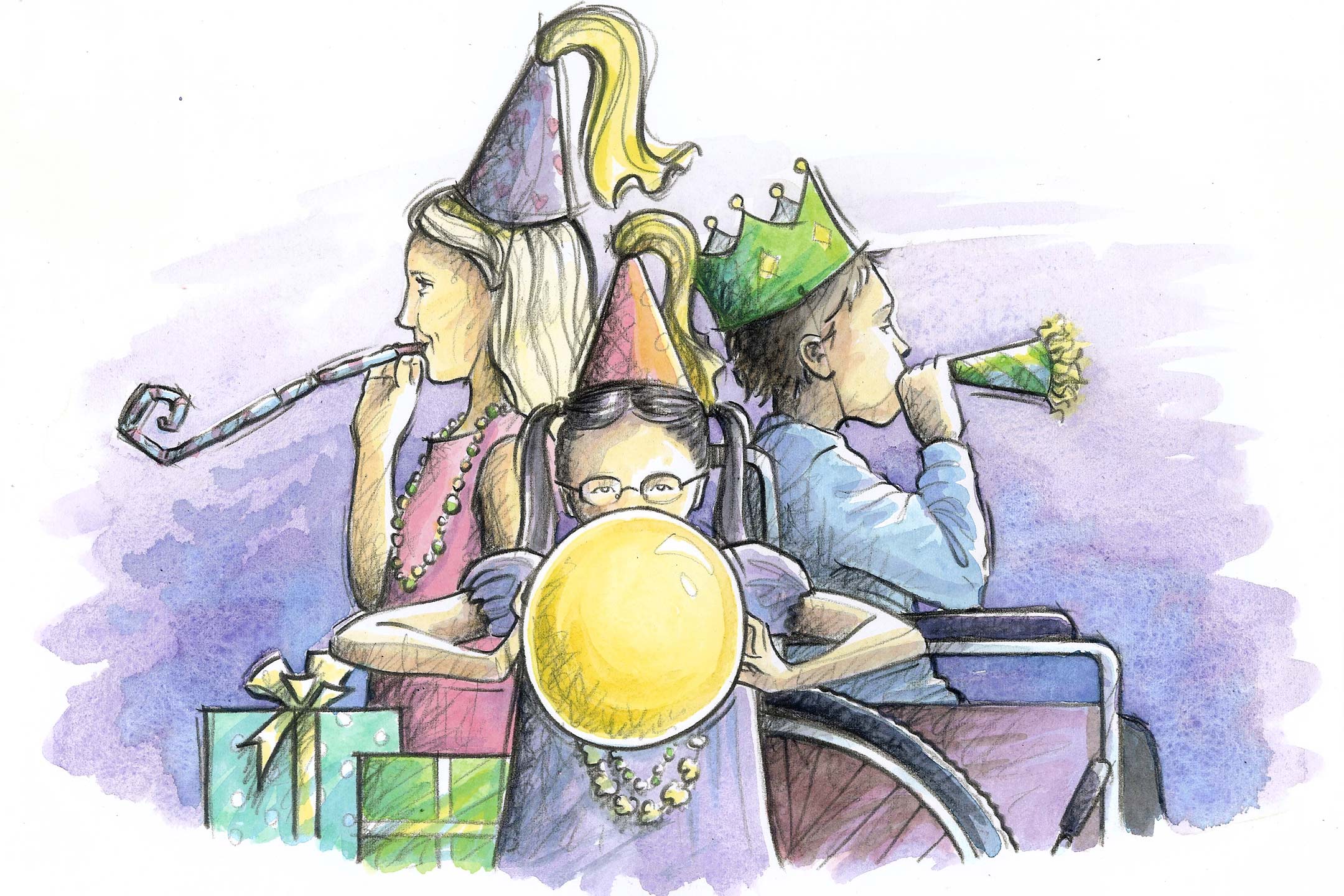
13 Jul Cause For Celebration
A class party is a rewarding experience for Chantai Snellgrove’s daughter, but it is an even greater gift for her mother.
My daughter Kailee is now 12 years old. I used to struggle when deciding what to do for her birthday. Should I invite my friends and their children – children who were not really friends with Kailee? Or should I invite her real friends from her special-needs class? The latter option presented a problem because several of the children were in wheelchairs, and their parents did not normally bring them to parties.
Then, one year, I went to her teacher and asked if we could have a party in the classroom at lunchtime. A real party, one with a theme and invitations. Perhaps the children could play a game, and lunchtime could be extended from 20 minutes to an hour so as not to disrupt education time too much. After getting permission from the principal, it was on.
Kailee chose the theme of ‘Princes and Princesses’. We made and sent out the invitations. We made each of the boys a crown and each of the girls a tiara. Decorations were a tablecloth, paper plates and napkins. Lunch was takeaway (the teacher took the children’s orders in advance, and we picked them up), and the game was the classic ‘Pin the Tail on the Donkey’.
It was the best birthday ever. Kailee had such a good time, as did her friends. I noticed that I was actually enjoying the party and wondered what was different. Then it dawned on me that not once did I have to say, ‘Kailee stop’, ‘Kailee, don’t do that’, or ‘We don’t act/behave like that’. I was actually able to relax and enjoy the party. Everything she did was acceptable. Everybody there – her teacher, aides and friends – all loved her for who she is.
I wondered if I should be more accepting of who my daughter is and let her be. Perhaps my own insecurities and prejudgements were holding my daughter back. It turned out that I was the one who received a gift that day. The gift of accepting my daughter for who she is. But I don’t allow this acceptance to stop me from encouraging her, pushing her and expecting her to be all that she can be.
After the birthday party, the teacher said it had been a wonderful, practical teaching tool as well. She was able to pull many lessons out of the party.
That birthday party was two years ago. But it really opened my eyes to the idea that my daughter – along with all children with special needs – requires more opportunities to experience different social settings and gain associated skills. If most of the children in Kailee’s special-needs class had never been to a birthday party, how could we expect them to know how to behave socially?
I believe most children with different abilities lack social skills because they do not have the same opportunities to experience different social settings as their ‘typical’ peers. Most of Kailee’s early years were spent in therapy sessions. Her playmates were her therapists, parents or family members – all adults. Adults play differently from children. Social skills, such as those used in playing a game, sharing a toy or attending a birthday party, are things that most children experience at a young age and continue to learn and develop as they get older.
In order for Kailee to gain more social skills, she needed more exposure to these types of social settings. I needed to assist her by encouraging more play dates, helping her make friendships, teaching her the appropriate responses and enabling her to practise them.
I also had to stop trying to make Kailee be typical. I had to explain to others (parents, friends and family), without shame, that Kailee has different abilities… and then share with them her strengths and abilities. Although she is developmentally delayed with learning difficulties, fine and gross motor delays and speech challenges, she is also very personable, kind, loving and funny, with a quick wit. Kailee loves to sing, never views anyone as a stranger and genuinely likes everyone.
I opened up to my neighbour, who has two typical boys younger than Kailee, about encouraging a friendship, playing and playdates. She agreed, and I am grateful. I have also encouraged friendships with children from Kailee’s special-needs class and have allowed her to join the sports program Special Olympics. Again, in relation to Special Olympics, I realised that I needed to get past myself to allow my daughter new opportunities.
This year, Kailee is having her birthday party at school again, and the teacher had the students call and let me know that they would be attending Kailee’s birthday party, as well as what they would like to order for lunch.
But, more importantly, because I am now more accepting of my daughter and who she is (and yes, less prejudiced about others), my daughter has friends! She will proudly tell you that she has lots of friends: she happily names and counts them off one by one using her hands, then asks to use yours to continue to count them all. But, more importantly, she has a life – her life – with parties, sleepovers and social sports.
That birthday party really provided me with the gift of acceptance, not only for my daughter but for others as well. I learned to appreciate that all of us are different, and we need to be accepted for who we are. What a gift!
Illustration by Susy Boyer

